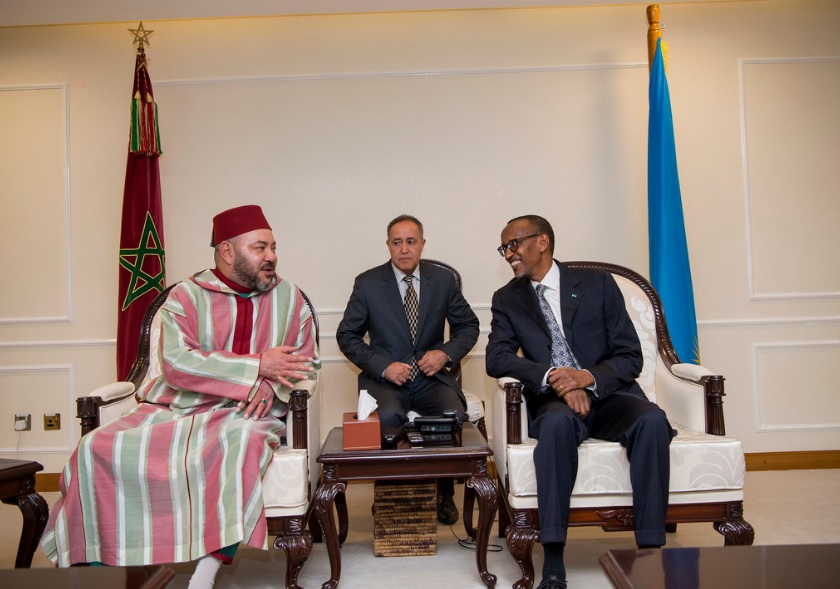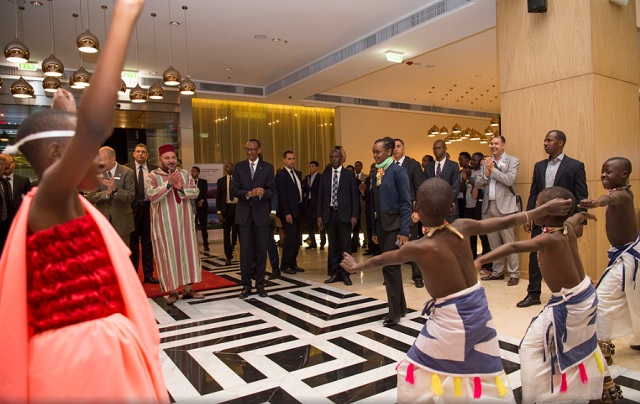
Kigali, Rwanda | AFP |
Moroccan King Mohammed VI on Wednesday began a tour of east Africa to shore up support for a historic bid to rejoin the African Union after more than three decades.
The visit, kicking off in Rwanda and set to take in Tanzania and Ethiopia, also aims to forge diplomatic and economic ties with a region largely ignored by the north African country up until now.
“We have never had any presence, neither diplomatic nor economic, nor cultural, nor historic, with east Africa,” a high-ranking member of the king’s delegation told AFP on condition of anonymity.
“Aside from west and central Africa we must open up to east Africa and that is what is under way. The context of Morocco’s return to the African Union is there too of course, and these are important countries in the AU.”

In Rwanda, Mohammed met with President Paul Kagame and signed 19 bilateral agreements, mostly in the economic sector. It was not clear exactly when he would leave for Tanzania.
Rabat officially requested to rejoin the AU in September, 32 years after quitting the bloc in protest at its decision to accept Western Sahara as a member.
Morocco has occupied the sparsely populated Western Sahara area since 1975 in a move that was not recognised by the international community.
It maintains that Western Sahara is an integral part of the kingdom even though local Sahrawi people have long campaigned for the right to self-determination.
In 1991, the United Nations brokered a ceasefire between Moroccan troops and Sahrawi rebels of the Algerian-backed Polisario Front but a promised referendum to settle the status of the desert territory is yet to materialise.
The tour of east Africa “is also a way to get closer to countries which historically had positions which were hostile to Morocco’s interests”, said the Moroccan source, adding that the region had been considered an ally of Algeria.
The Moroccan monarch in July said his nation’s decision to return to the AU did not mean it was changing its stance on Western Sahara.
Rabat’s membership bid must be approved by a vote of the AU Commission in order to be accepted.
 The Independent Uganda: You get the Truth we Pay the Price
The Independent Uganda: You get the Truth we Pay the Price



